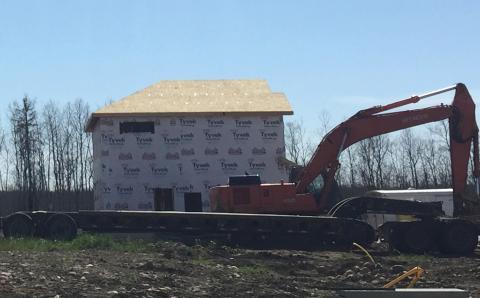It began with a missed email. Greg Talsma was disturbed by what he read on a blog sponsored by the Christian Reformed Office of Social Justice and the Centre for Public Dialogue. He wrote an email to the editors of the Do Justice blog. He received no response. Or so he thought. In fact, staff had responded, but the email somehow didn’t get to Talsma. Thinking he had received no response, he brought the matter to Classis Minnkota (the regional group of churches). Minnkota brought the complaint to Synod 2017, the annual leadership meeting of the Christian Reformed Church.
At synod, discussion over the editorial policy of Do Justice galvanized delegates like few other issues this year. The Minnkota complaint alleged that the blog had gone much too far to promote dialogue, saying, “Though intended for good, the focus on different points of view has gone much too far, including authors who promote praying to false gods, equate Native religions to Christianity, participate in idolatry, and promote pluralism.”
The complaint was based in a number of articles in which the authors reported and explored participation in First Nations religious ceremonies, including a new moon ceremony and prayer in the name of the Great Spirit. Alleging violations of the second and perhaps first commandments, Minnkota asked synod “to establish oversight of the blog Do Justice to ensure that posted articles are in line with Scripture and our confessions. . . .”
Two powerful voices punctuated the ensuing discussion. One was Bobby Boyd of Classis Red Mesa. Boyd in a quiet voice spoke of his experience as a Native American. He said, “My understanding is that we did not [truly] know God until we heard the gospel.” He said that when you put together the worship of the triune God with evil spirits you are a syncretist. We are Reformed, he added. “We stand on the Word of God.”
Jeannette Romkema of Classis Toronto was equally persuasive on the other side. She said that blogs are a very different kind of forum. She said that she had been a subscriber to and had written for Do Justice. She called it “a gift.” She mentioned her sons who were often skeptical of the church but for whom the blog was a positive contribution. In the blog, she added, the church listened to First Nations people in a way that it had not listened before. She said that Do Justice was “one of the first spaces that we have welcomed dialogue” with people whose voice has been taken away.
Part of the discussion also had to do with the nature of Internet forums like Do Justice. How are they different from older, paper-based ways of communicating? Jessica Groen of Classis Illiana said that blogs like Do Justice should be seen as works in process, a conversation, not something settled and fixed like print. She said that we need to provide for “open and alive communication.” We should not “squelch the process.”
James Poelman, Classis Chatham, used the analogy of difference between discussion in the family and a conversation in a neighborhood. He said that if you invite in your neighbors for a conversation, you do not tell them what to say. Do Justice, he said, was intended to be a neighborhood discussion, not a family discussion.
The discussion was long, interrupted by procedural motions, by other business, and by breaks, but ended with deep passion and a decision that attempted to honor both the concerns of Classis Minnkota and the mission of Do Justice.
Synod took several non-controversial actions immediately. They commended the editors of Do Justice for actions they have already taken to tighten editorial policy. They recommended adding references to past decisions of the church where appropriate. They asked that it be made clear that the articles on the blog do not necessarily represent the official position of the Christian Reformed Church. They asked that representatives from Classis Minnkota meet face-to-face with the editors of Do Justice.
There was also general agreement that there should be oversight for the blog. The sticking point was the nature of this oversight. The issue was whether the blog should continue to be a “conversation space,” open to a variety of points of view or whether it should present the fixed positions of the church.
Some delegates wanted synod to “instruct those who have oversight of the Do Justice blog to ensure that the articles are written in such a way that they encourage a Reformed understanding of Scripture.” Others wanted stronger language, asking that the articles conform to Scripture and the Reformed confessions.
The long discussion ended with Bobby Boyd’s plea to “stay in the Scriptures” and “to make the right decision tonight.”
Synod decided it is sufficient to encourage staff to ensure content of the blog articles encourage a Reformed understanding of Scripture.
Synod 2017 is meeting at Trinity Christian College in Palos Heights, Ill., from June 9-15. For continuous coverage while synod is in session, download the Banner app on your mobile device or follow The Banner Magazine on Facebook or @crcbanner on Twitter. You can find more tweeting by following hashtag #crcsynod. News stories will be posted at thebanner.org several times daily. For CRC Communications releases and the webcast, please visit crcna.org. Unless noted otherwise, all photographs are by Karen Huttenga.
About the Author
Clayton Libolt was the long time pastor of River Terrace Church in East Lansing, Mich. Since his retirement, he has served in a variety of interim positions. He is presently serving as the interim senior pastor of Sonlight Community CRC in Lynden, Wash.









